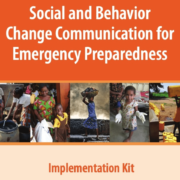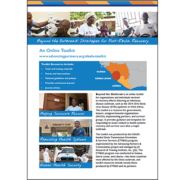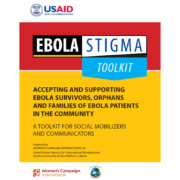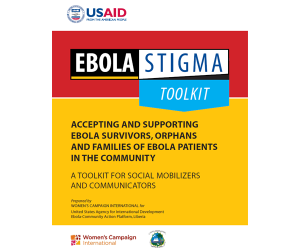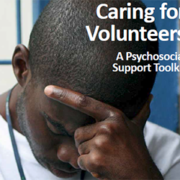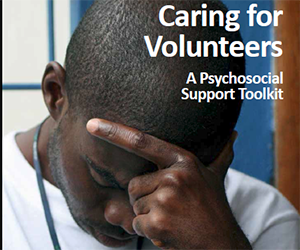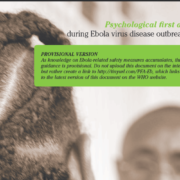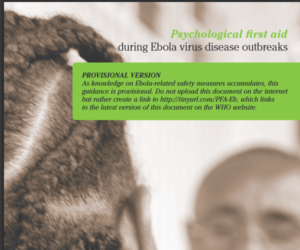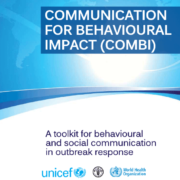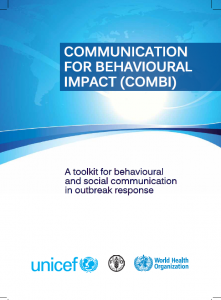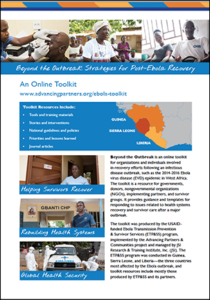 This toolkit is a resource for organizations and individuals involved in recovery efforts following an infectious disease outbreak, such as the Ebola virus disease (EVD) outbreak in West Africa in 2014-2016. Its primary goal is to provide governments, donors, NGOs, and survivor groups with guidance and templates for responding to issues related to patient needs and health systems recovery after a major outbreak. Comprised of multiple resources, the toolkit includes best practices and lessons learned, tools and templates, and recovery-oriented research articles, as well as videos, technical briefs, and success stories presented as examples of the health systems recovery work conducted by the Ebola Transmission Prevention & Survivor Services (ETP&SS) programs in Guinea, Liberia and Sierra Leone in 2016-2018. These programs were funded by the US Agency for International Development (USAID) and implemented by the Advancing Partners & Communities Project through JSI Research & Training Institute, Inc.
This toolkit is a resource for organizations and individuals involved in recovery efforts following an infectious disease outbreak, such as the Ebola virus disease (EVD) outbreak in West Africa in 2014-2016. Its primary goal is to provide governments, donors, NGOs, and survivor groups with guidance and templates for responding to issues related to patient needs and health systems recovery after a major outbreak. Comprised of multiple resources, the toolkit includes best practices and lessons learned, tools and templates, and recovery-oriented research articles, as well as videos, technical briefs, and success stories presented as examples of the health systems recovery work conducted by the Ebola Transmission Prevention & Survivor Services (ETP&SS) programs in Guinea, Liberia and Sierra Leone in 2016-2018. These programs were funded by the US Agency for International Development (USAID) and implemented by the Advancing Partners & Communities Project through JSI Research & Training Institute, Inc.
The toolkit can be found here.
Cette ressource est disponible en français.
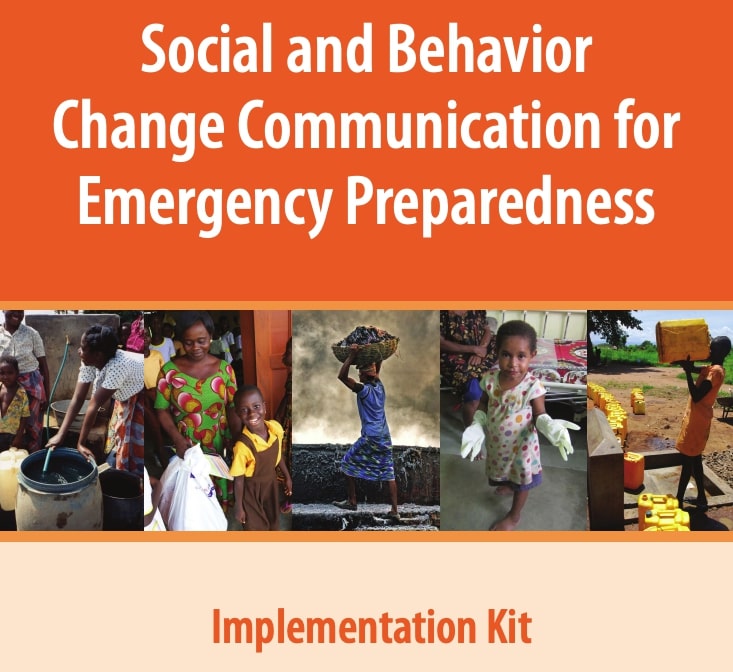 Johns Hopkins Center for Communication Programs (JHCCP) developed toolkit that provides essential information and tools for responding to an outbreak using an SBCC approach. It presents a series of nine units, each accompanied by exercise worksheets to help link the SBCC theory to practice.
Johns Hopkins Center for Communication Programs (JHCCP) developed toolkit that provides essential information and tools for responding to an outbreak using an SBCC approach. It presents a series of nine units, each accompanied by exercise worksheets to help link the SBCC theory to practice.
